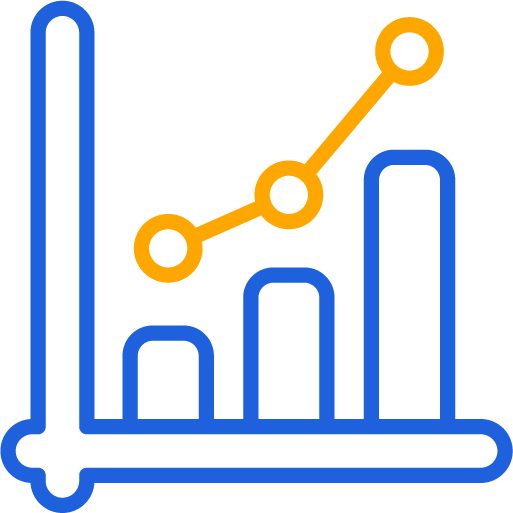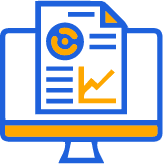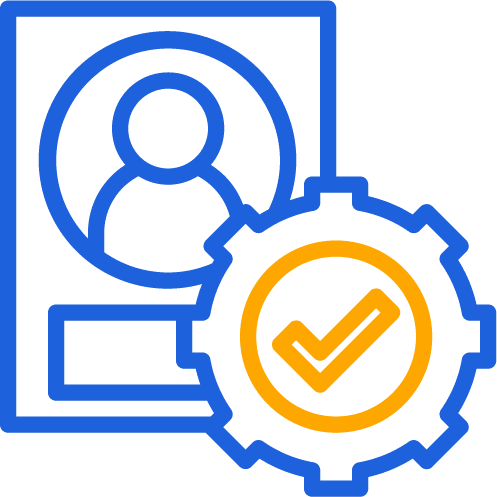Best United Kingdom Forex Brokers In 2023
Entering the realm of finding best forex brokers United Kingdom trading is one of the most important decisions a trader can make, and this is particularly true for traders looking for the top United Kingdom-based brokers. Because there is such a wide variety of possibilities accessible, it is very necessary to choose a trustworthy and well-regulated best United Kingdom forex brokers that is in accordance with your trading objectives.
CompareBroker’s devoted staff has conducted extensive research and evaluated the world’s finest forex brokers in the context of United Kingdom’s local regulatory environment in order to assist you in making this important decision. Traders residing in United Kingdom are the target audience for this detailed guide, which seeks to give information on the most suitable forex brokers in order to ensure a safe and well-informed trading trip.
.
What are the best forex brokers United Kingdom in 2023?
We compiled a comprehensive database of best United Kingdom Forex Brokers who are registered with the Financial Conduct Authority and Investments Commission and then we rated them by Overall. The Sterling is United Kingdom’s official currency at the national level. The Bank of England is the name of United Kingdom’s national bank and the country’s central bank. The provision of financial services to the United Kingdom government, the supervision of the nation’s banking institutions, and the maintenance of price stability are the three key tasks that fall within the purview of United Kingdom’s Central Bank. It is the main job of the Financial Conduct Authority (FCA) to protect consumers and the financial markets by ensuring that providers of financial services comply with all applicable laws and regulations.
Pepperstone – our best United Kingdom brokerage 1st choice
ThinkMarkets – Our best United Kingdom brokerage 3rd choice
MultiBankGroup– Our best United Kingdom brokerage 5th choice
Best United Kingdom Brokers

Pepperstone stands out as a leading forex brokerage company in the UK, earning its reputation through a combination of regulatory compliance, competitive trading conditions, and a commitment to providing exceptional trading experiences. Regulated by the Financial Conduct Authority (FCA), Pepperstone offers a secure and transparent trading environment that instills trust among traders. With a range of account types, including the Raw Spread and Standard accounts, traders can choose options that align with their strategies and risk tolerance. The company’s adoption of industry-renowned platforms like MetaTrader 4 and 5 ensures access to advanced tools and features for both novice and experienced traders. Pepperstone’s dedication to low spreads, quick execution, and responsive customer support further solidifies its position as a premier forex brokerage in the UK, catering to traders seeking reliability, innovation, and a holistic trading experience.
You can read the full detail reviews of more than 10,000 words here
AvaTrade is recognized as a well-established forex brokerage that operates globally, including in the UK. It has gained a reputation for providing a comprehensive trading experience to its clients. With its regulation by the Financial Conduct Authority (FCA) in the UK, AvaTrade offers traders a sense of security and trustworthiness.
AvaTrade’s strengths lie in its diverse range of trading instruments, including forex pairs, commodities, indices, and cryptocurrencies. The brokerage is known for offering multiple trading platforms, such as MetaTrader 4 (MT4) and MetaTrader 5 (MT5), catering to various trading styles and preferences. Furthermore, AvaTrade places emphasis on education, offering educational resources and market analysis to help traders enhance their skills and knowledge.
Competitive trading conditions, a commitment to customer service, and a user-friendly interface contribute to AvaTrade’s recognition in the forex industry. When considering AvaTrade as the best forex company in the UK, traders should take into account their own trading goals and preferences, as well as conduct thorough research to ensure that AvaTrade aligns with their needs in the ever-evolving forex market.
AvaTrade is one of the few brokers who offers both the MetaTrader 4 and MetaTrader 5 platforms. AvaTrade allows the user to perform a 0.01 Lot trade.
Trading Features:
- Allows for scalping
- Allows for hedging
- Minimum deposit is low.
Accounts offered:
- Mini account
- Standard account
- Islamic accountDemo account
- Micro account
Funding methods:
- Skrill
- Payoneer
- PayPal
- NetellerCredit cards
- Bank Transfer
You can read full reviews about AvaTrade here
ThinkMarkets stands out as an exceptional choice for United Kingdom clients seeking a reliable and comprehensive forex brokerage. Its commitment to providing a superior trading experience, combined with a range of tailored features, makes it a preferred option in the competitive forex market.
One of ThinkMarkets’ strongest attributes is its regulatory standing. The brokerage is authorized and regulated by respected financial authorities, including the German Federal Financial Supervisory Authority (BaFin). This regulatory oversight ensures that German clients can engage in forex trading with the utmost confidence, knowing that their interests are safeguarded and that the brokerage operates in accordance with stringent regulatory standards.
ThinkMarkets’ dedication to technology and innovation further cements its appeal. The broker offers cutting-edge trading platforms, including MetaTrader 4 and MetaTrader 5, which are favored by traders for their user-friendly interfaces and advanced analytical tools. These platforms empower German clients to execute trades seamlessly, analyze market trends, and implement their trading strategies effectively.
Additionally, ThinkMarkets’ commitment to education and client support enhances its value proposition. The broker offers comprehensive educational resources, webinars, and market analysis to empower traders with knowledge and insights. Its responsive customer support team ensures that German clients receive timely assistance and guidance whenever needed.
In terms of trading conditions, ThinkMarkets provides competitive spreads, transparent pricing, and a wide range of trading instruments, catering to the diverse needs of German traders.
In summary, ThinkMarkets’ regulatory compliance, technological sophistication, educational resources, and client-centric approach make it a standout forex brokerage for German clients. Its dedication to providing a secure, innovative, and supportive trading environment positions it as a strong contender for those seeking a top-tier trading experience in the German forex market.
Trading Features:
- Offers STP
- Low min deposit
Accounts offered:
- Demo account
- Zero account
- Standard account
- Islamic account
Funding methods:
- Credit cards
- Bank Transfer
- Skrill
- Neteller
You can read the full review here
Axi, which has its headquarters in Australia and was established in 2007, has grown to become one of the most best United Kingdom’a Forex brokers in the world since then. It has done this by using some of the most renowned trading platforms in the globe. These platforms provide traders access to the most latest market data on forex, CFDs, and indices, which in turn enables them to trade at rates that are continuously competitive.
Traders have access to a wide range of products from which to pick, including contracts for difference (CFDs) based on underlying financial assets such as stock indexes, metals, foreign currencies, and commodities. Axi’s web-based trading platform is also available in a number of other languages for users’ convenience.
Axi also offers mobile trading, which ensures connection across all of the most important platforms and devices, and has servers located in New York, close to the exchange, to facilitate the execution of transactions more quickly. Additionally, it offers Expert Advisors for automated trading, as well as the choice to trade with either Standard or Pro accounts, regardless of whether the scenario is simulated or real.
- Allows hedging
- Offers STP
- Allows scalping
- Free VPS (For clients who trade 20 lots per month)
- Low minimum deposit
Accounts offered:
- Micro account
- Mini account
- Standard account
- Zero spread account
- VIP Account (Axi Elite)
- Demo account
- ECN account
- Islamic account
Funding methods:
- Bank Transfer
- Skrill
- Payoneer
- Credit cards
- Neteller
- Crypto (For clients based outside of Europe)
You can read the full review here
The MultiBank Exchange Group is a one of the best United Kingdom trading broker that offers services related to foreign exchange trading. Traders have access to a diverse selection of goods in a number of different marketplaces. These items include indices, shares, commodities, and currencies. It is needed that a minimum deposit of fifty dollars be made in order to open a live account, and it is regulated by ASIC, FSC, BaFin, CNMV, and FMA. On the other hand, MultiBank Group gives you access to a no-cost trial account so that you can get a feel for their system and try out different features in a risk-free environment. When compared to the average EUR/USD spread of 0.70 pips, the minimal EUR/USD spread offered by MultiBank Group, United Kingdom brokerage company, is considered to be typical at 0.8 pips.
At MultiBank Group, you have the opportunity to trade over 20,000 distinct products, among which are more than 55 currency pairings. One of the few United Kingdom forex brokers that offers both the MetaTrader 4 and MetaTrader 5 trading platforms, Multibank Group is one of such brokers. Check out our MT4 vs MT5 comparison to learn more about the differences between the two platforms. In addition to this, MultiBank Group provides access to their own technology, known as Pure ECN Pro. Traders may do business on their choice of device owing to downloadable applications available for both Mac and Windows operating systems.
You can read the full review here
United Kingdom's Forex Brokers Comparison
Compare United Kingdom’s forex and CFDs or make a side-by-side comparison of different forex and CFDs brokers in United Kingdom by using either the forex broker comparison tool or the summary table that is provided below. This broker list is arranged according to the overall rating that each company has on CompareBroker.io
Comparing Trading Cost of United Kingdom forex brokers

Comparing Trading platform between United Kingdom forex brokers
Trading platforms provide access to the foreign currency market and enable traders to analyse market conditions, monitor positions, and place transactions. Trading platforms also let traders to execute deals. View a side-by-side comparison of the trading platforms that are offered by the most reputable forex brokers in United Kingdom, as determined by our own independent product testing.

Comparing investment opportunities between United Kingdom forex broker
We keep a careful eye on the availability of various financial products, including but not limited to social copy trading, forex trading (both CFD and spot), stock trading (both CFD and non-CFD), spread betting, exchange-traded funds (ETFs), and more. Within our comprehensive and impartial database, these different forms of investments are monitored as variables in their own right. Investigate the types of investments that are available at the best forex brokers in Germany.


Frequently Asked Questions
How to trade forex
Trading forex involves buying and selling currencies with the goal of making a profit. It can be a complex endeavor, but I’ll provide you with a general overview of the steps involved in trading forex:
Educate Yourself: Before you start trading, it’s crucial to educate yourself about the forex market. Learn about basic concepts such as currency pairs, exchange rates, pips, lots, and different trading strategies. There are numerous online resources, courses, and books available to help you understand the fundamentals of forex trading.
Choose a Reliable Forex Broker: Selecting the right forex broker is essential. Look for a broker that is regulated by a reputable financial authority and offers a user-friendly trading platform. Consider factors such as spreads, commissions, leverage, and available trading tools.
Create a Trading Plan: A trading plan outlines your trading goals, risk tolerance, preferred trading style, and strategy. It should also include rules for entry and exit points, risk management, and position sizing. A well-defined trading plan helps you stay disciplined and make informed decisions.
Practice on a Demo Account: Most brokers offer demo accounts that allow you to practice trading with virtual money. This is a valuable step to gain practical experience and test your trading strategy without risking real funds.
Fund Your Trading Account: Once you’re comfortable with your demo trading, you can fund your live trading account. Deposits can often be made via bank transfer, credit card, or other payment methods.
Start Trading: With a funded account, you can start trading real money. Monitor the forex market, analyze currency pairs, and execute trades based on your trading plan. Remember to start with smaller position sizes and gradually increase as you gain experience.
Technical and Fundamental Analysis: Traders use both technical and fundamental analysis to make trading decisions. Technical analysis involves studying price charts, patterns, and indicators to predict price movements. Fundamental analysis involves analyzing economic indicators, news, and events that impact currency values.
Risk Management: Managing risk is crucial to long-term success. Never risk more than you can afford to lose on a single trade. Use tools like stop-loss and take-profit orders to limit potential losses and secure profits.
Stay Informed: Stay updated on global economic and political events that can influence currency markets. Economic calendars and news sources can help you anticipate market movements.
Continuous Learning: The forex market is dynamic, and continuous learning is essential. Keep refining your trading strategy, learning new techniques, and adapting to changing market conditions.
How to trade forex for beginners
Trading forex as a beginner can be both exciting and challenging. Here’s a step-by-step guide to help you get started with forex trading:
Education and Research:
- Begin by learning the basics of forex trading. Understand key concepts such as currency pairs, pips, lots, leverage, and order types.
- Explore different trading strategies and decide which ones align with your trading goals and risk tolerance.
- Study technical analysis (chart patterns, indicators) and fundamental analysis (economic indicators, news events) to make informed trading decisions.
Choose a Reliable Broker:
- Select a reputable and regulated forex broker. Look for features like user-friendly trading platforms, competitive spreads, good customer support, and educational resources.
- Open a demo account with your chosen broker to practice trading without risking real money.
Develop a Trading Plan:
- Create a well-defined trading plan that outlines your goals, risk tolerance, preferred trading style, and strategy.
- Determine your entry and exit criteria, position sizing, risk-reward ratio, and how you’ll manage trades.
Practice on a Demo Account:
- Use the demo account to practice executing trades and implementing your trading plan.
- Gain experience and build confidence in your trading skills without risking real capital.
Understand Risk Management:
- Never risk more than you can afford to lose on a single trade.
- Use risk management tools like stop-loss orders to limit potential losses.
- Consider your risk per trade as a percentage of your total trading capital.
Start Trading with a Small Account:
- Once you’re comfortable with your demo trading, open a live trading account with a small amount of capital that you can afford to lose.
- Start with smaller position sizes to manage risk as you gain experience.
Monitor the Markets:
- Keep an eye on currency pairs that interest you. Analyze charts, identify trends, and look for potential trading opportunities.
Practice Patience and Discipline:
- Stick to your trading plan and avoid making impulsive decisions based on emotions.
- Be patient and wait for setups that align with your strategy.
Start Simple and Gradually Expand:
- Begin with a single currency pair and master your strategy before diversifying.
- As you gain experience, you can explore more currency pairs and trading strategies.
Keep Learning and Adapting:
- Forex trading is a continuous learning process. Stay updated on market developments, refine your trading strategy, and adapt to changing market conditions.
Keep Records:
- Maintain a trading journal to record your trades, reasons for entry and exit, and lessons learned. This will help you track your progress and improve over time.
Seek Knowledge and Mentorship:
- Read books, watch educational videos, and consider joining trading communities to learn from experienced traders.
- Consider seeking advice from professionals or mentors who can provide valuable insights.
How to trade forex United Kingdom
Trading forex in Germany follows a similar process to trading forex in most other countries. Here’s a step-by-step guide to get you started on trading forex in Germany:
Education and Research:
- Begin by educating yourself about the forex market. Understand key concepts like currency pairs, pip movements, technical and fundamental analysis, and risk management.
- Research reputable sources, books, online courses, and tutorials to enhance your understanding of forex trading.
Choose a Reliable Forex Broker:
- Select a well-regulated and trustworthy forex broker. Look for regulatory bodies like BaFin (Federal Financial Supervisory Authority) in Germany and other international regulators.
- Consider factors such as trading platforms, spreads, commissions, leverage, and available currency pairs.
Open a Trading Account:
- Visit the broker’s website and follow their account opening process.
- Provide necessary documents for identity verification and account funding.
Fund Your Account:
- Deposit funds into your trading account using various payment methods provided by the broker.
Develop a Trading Plan:
- Define your trading goals, risk tolerance, and preferred trading style (scalping, day trading, swing trading, etc.).
- Create a trading plan that outlines your strategies, entry and exit points, risk management rules, and trading schedule.
Practice with a Demo Account:
- Most brokers offer demo accounts that allow you to practice trading with virtual funds. This is a great way to gain experience without risking real money.
Learn About Analysis:
- Familiarize yourself with technical analysis (using charts, indicators, and patterns) and fundamental analysis (monitoring economic indicators, news, and events).
Start Trading:
- Begin trading by placing orders based on your analysis. You can execute market orders, limit orders, stop orders, and more.
Risk Management:
- Implement proper risk management techniques to protect your capital. Never risk more than you can afford to lose on a single trade.
Continuous Learning and Improvement:
- Forex trading is a continuous learning process. Stay updated on market trends, news, and changes in regulations.
- Analyze your trades to identify strengths and weaknesses. Adjust your trading plan accordingly.
Monitor and Adapt:
- Regularly monitor your trades and the market. Adjust your strategies as needed based on your performance and changing market conditions.
Stay Informed and Connected:
- Stay connected with the global trading community through forums, social media, and news outlets. This can provide valuable insights and perspectives.
Remember that forex trading carries a high level of risk, and it’s possible to lose more than your initial investment. It’s important to start with a small amount of capital, use proper risk management, and only trade with money you can afford to lose. If you’re new to trading, consider seeking guidance from experienced traders or financial professionals.
How to trade forex with leverage
Trading forex with leverage allows traders to control a larger position size with a relatively smaller amount of capital. Leverage amplifies both potential profits and losses, making it a powerful tool that requires careful consideration and risk management. To trade forex with leverage, a trader first selects a leverage ratio offered by their broker, such as 10:1 or 50:1. For example, with a 50:1 leverage, a trader can control a $50,000 position with just $1,000 of their own capital.
While leverage can enhance gains, it also increases exposure to market fluctuations. Therefore, traders must implement effective risk management strategies, including setting stop-loss and take-profit orders, to limit potential losses. It’s crucial to thoroughly understand the risks associated with leverage and only use it if you have a solid trading plan and the necessary knowledge. As a responsible practice, traders should never risk more than they can afford to lose and should be aware that using high leverage can magnify both profits and losses, requiring a cautious and disciplined approach to trading.
How to trade forex with ai
Trading forex using AI (Artificial Intelligence) in the United Kingdom involves utilizing advanced algorithms and technology to automate trading decisions. Here’s a general guide on how to get started with AI-driven forex trading in the UK:
Understand AI in Forex Trading:
- Educate yourself about how AI and machine learning can be applied to forex trading. Understand the concepts of algorithmic trading, automated trading strategies, and data analysis.
Choose a Reliable AI Platform or Software:
- Research and select a reputable AI-powered trading platform or software. Ensure it is compatible with UK regulations and offers the features you need, such as automated trading, backtesting, and customization.
Education and Training:
- Familiarize yourself with the AI trading platform’s interface, tools, and functionalities.
- Learn about the different AI trading strategies and their parameters.
Data Collection and Analysis:
- AI trading systems rely on historical and real-time market data. Ensure the platform has access to reliable data sources.
Develop or Select an AI Strategy:
- Depending on your chosen platform, you can either create your own AI trading strategy using coding languages like Python or select from pre-built strategies provided by the platform.
Backtesting:
- Before deploying your AI strategy in a live environment, perform thorough backtesting on historical data to assess its performance.
Paper Trading:
- Most AI trading platforms offer a paper trading or demo mode. Test your strategy in this simulated environment to see how it performs without risking real money.
Risk Management:
- Implement strict risk management rules within your AI strategy. Define parameters for position sizing, stop-loss levels, and take-profit targets.
Live Trading:
- Once you are confident in your AI strategy’s performance, you can deploy it in a live trading environment using real funds.
- Monitor the AI system’s performance closely, but avoid micromanaging every trade.
Regular Monitoring and Optimization:
- Continuously monitor the AI trading system’s performance and make necessary adjustments if market conditions change.
- Stay updated on technological advancements and AI-related developments in the forex trading field.
Stay Informed:
- Keep yourself informed about changes in forex regulations in the UK that might affect AI trading systems.
Risk Disclaimer:
- Understand that AI trading involves risks, just like any other trading method. Past performance is not indicative of future results. Be prepared for potential losses.
It’s important to note that AI trading requires a certain level of technical expertise, including programming and data analysis skills. If you’re not familiar with coding, you might consider working with a developer who can help you create or customize AI trading strategies. Additionally, make sure to thoroughly research and choose a reputable AI trading platform that complies with UK regulations and offers the necessary support and resources.

























